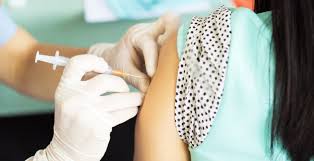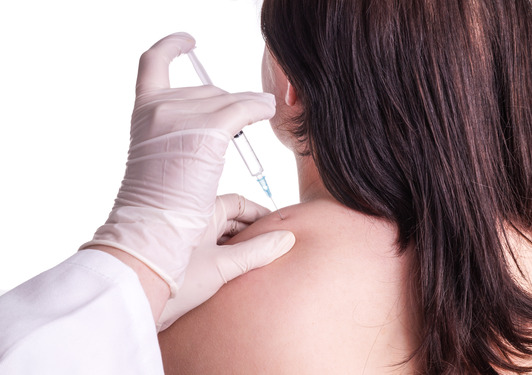Ken Donohue stated that SIRVA is an extremely unusual illness that manifests itself in the form of discomfort and a loss of function in the shoulder after receiving a vaccine. How rare is this occurrence, exactly? As an orthopedic shoulder expert, Dr. Donohue said he had seen a relatively small number of patients with this condition. In addition to this, there is very little information accessible on it since it is so uncommon. There are even medical experts who dispute that the condition exists.
What Causes SIRVA?
Dr. Donohue said that although physicians and nurses have enough training in utilizing the appropriate needle length and landmarking (that is, establishing where a vaccination should be delivered in the arm), there are still instances in which the injection is not administered in the right location.
According to Dr. Donohue, "when a needle is inserted too far into the shoulder, the deltoid muscle may be punctured, and structures inside the shoulder can be injured." It is possible, but very unlikely, for axillary or radial nerves in upper arm to be damaged.
SIRVA was defined as "occurring when an injection is placed too high in the arm, and the vaccine is given to the shoulder capsule rather than the deltoid muscle," in a research published in Canadian Pharmacists Journal in 2018.
The authors of this research also noted that injecting medication into the incorrect region of the arm triggers an inflammatory reaction, which causes damage to the tissues in the shoulder, such as the tendons and the bursa.
SIRVA: Its Symptoms and Possible Treatments
Pain in the muscles that feels like a dull ache after being vaccinated is very normal, although it often goes away on its own within a few days. When vaccinated with SIRVA, a person will often begin experiencing pain within the first 48 hours after receiving the shot, and this discomfort does not subside with time.
People who have SIRVA may find that their symptoms worsen over the course of many months, during which time they may complain of growing discomfort, weakness, and limited movement in the arm that was injected. Simple movements like raising your arm to brush your teeth may induce discomfort. "Simple actions" refers to activities that require the individual to elevate their arm.
The most common symptoms are shoulder suffering and a reduced range of motion. Additionally, the most familiar initial diagnoses strive to be adhesive capsulitis, shoulder bursitis, and rotator cuff tears.
According to a study published in the Journal of Hand Surgery Global Online in 2022, these diseases may manifest themselves if injections are administered in the shoulder in the wrong regions.
People experiencing these symptoms should make every effort to see a medical professional. According to Grindrod, "It is crucial that we learn to detect these indicators of SIRVA to obtain the proper therapy."
Protection against SIRVA
According to Grindrod, medical professionals who provide vaccines must make sure they apply the appropriate vaccination landmarking procedures. If, on the other hand, you are the one who will be receiving the vaccination, there are a few preventative measures that you may take.

"It is vital to allow the individuals administering immunizations view the complete shoulder so that they can reference the appropriate landmarks for effective injection," said Dr. Donohue. "This will ensure that the injection is given in the correct location."
"If you want to show off your whole shoulder, you should choose a blouse that has no sleeves or one that can be taken off easily. If the sleeve is rolled up, the person who is giving the vaccination may not be able to see all of the landmarks that are required to provide the vaccine in the correct manner."
Summary
Even while the prevention of SIRVA rests partly on the person giving the injection, you may play a role by ensuring that your arm is completely visible to the person giving the injection so that they can properly landmark it for the injection. It is also crucial to remember that vaccinations save lives and that the danger of SIRVA is very tiny. Both of these things should be kept in mind.
Dr. Donohue said, "I can't stress enough that the hazards associated with not being vaccinated much exceed the likelihood of SIRVA." "I can't highlight enough that the risks connected with not getting vaccinated" My recommendation is that you continue to be vaccinated as you usually would but discuss any concerns you may have with the primary care physician overseeing your treatment.








